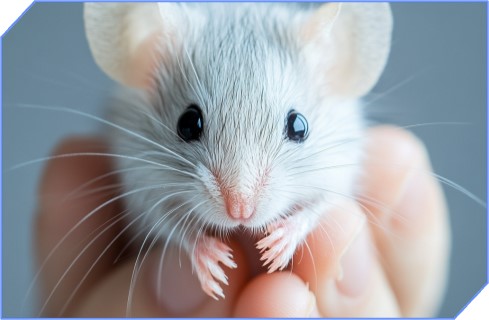- Home
- Solutions
- Infectious Diseases
- Viral Infections
- Lassa Fever
- Home
- Solutions
- Infectious Diseases
- Bacterial Infections
- Acinetobacter Infection
- Actinomycosis
- Anaplasmosis
- Arcanobacterium Haemolyticum Infection
- Anthrax
- Bacillus Cereus Infection
- Bacteroides Fragilis Infection
- Bartonellosis
- Botulism
- Buruli Ulcer
- Campylobacteriosis
- Brucellosis
- Cat-scratch Disease
- Burkholderia Infection
- Chancroid
- Chlamydia Infection
- Cholera
- Clostridioides Difficile Infection
- Diphtheria
- Ehrlichiosis
- Enterococcus Infection
- Clostridium Perfringens Food Poisoning
- Gas Gangrene
- Glanders
- Gonorrhea
- Group A Streptococcal Infection
- Haemophilus Influenzae Infection
- STEC-Hemolytic-uremic Syndrome
- Human Granulocytic Anaplasmosis
- Kingella Kingae Infection
- Legionnaires' Disease
- Lyme Disease
- Leprosy
- Leptospirosis
- Melioidosis
- Meningococcal Disease
- Murine Typhus
- Mycoplasma Genitalium Infection
- Mycoplasma Pneumoniae Infection
- Neonatal Conjunctivitis
- Nocardiosis
- Pasteurellosis
- Pertussis
- Plague
- Pneumococcal Infection
- Prevotella Infection
- Psittacosis
- Q Fever
- Relapsing Fever
- Rickettsial Infection
- Salmonellosis
- Shigellosis
- Syphilis
- Scrub Typhus
- Tetanus
- Toxic Shock Syndrome (TSS)
- Trachoma
- Tuberculosis
- Tularemia
- Typhoid Fever
- Epidemic Typhus
- Ureaplasma Urealyticum Infection
- Vibrio Parahaemolyticus Infection
- Vibrio Vulnificus Infection
- Yersinia Pseudotuberculosis Infection
- Viral Infections
- Adenovirus Infection
- Acquired Immune Deficiency Syndrome (AIDS)
- Argentine Hemorrhagic Fever
- Astrovirus Infection
- BK Virus Infection
- Bolivian Hemorrhagic Fever
- Calicivirus Infection
- Chickenpox
- Chikungunya
- Colorado Tick Fever
- Coronavirus Disease 2019 (COVID-19)
- Crimean-Congo Hemorrhagic Fever
- Cytomegalovirus Infection
- Dengue Fever
- Eastern Equine Encephalitis
- Ebola Virus Disease
- Enterovirus Infection
- Epstein-Barr Virus Infection
- Erythema Infectiosum
- Hand, Foot and Mouth Disease
- Hantavirus Infection
- Heartland Virus Disease
- Hepatitis A
- Hendra Virus Infection
- Herpes Simplex
- Human Bocavirus Infection
- Human Metapneumovirus Infection
- Hepatitis B
- Human Papillomavirus Infection
- Human Parainfluenza Virus Infection
- Human T-lymphotropic Virus 1 Infection
- Japanese Encephalitis
- Lassa Fever
- Lymphocytic Choriomeningitis
- Marburg Virus Disease
- Measles
- Morbillivirus Infection
- Middle East Respiratory Syndrome (MERS)
- Molluscum Contagiosum
- Monkeypox
- Mumps
- Nipah Virus Infection
- Poliomyelitis
- Progressive Multifocal Leukoencephalopathy
- Hepatitis C
- Rabies
- Respiratory Syncytial Virus Infection
- Rhinovirus Infection
- Rift Valley Fever
- Rotavirus Infection
- Rubella
- SARS-CoV-1
- Subacute Sclerosing Panencephalitis
- Tick-borne Encephalitis
- Hepatitis D
- Venezuelan Equine Encephalitis Virus Infection
- Venezuelan Hemorrhagic Fever
- West Nile Fever
- Hepatitis E
- Yellow Fever
- Zika Fever
- Parasitic Infections
- Amoebiasis
- African Trypanosomiasis
- Angiostrongyliasis
- Anisakiasis
- Ascariasis
- Babesiosis
- Balantidiasis
- Baylisascaris Infection
- Blastocystosis
- Capillariasis
- Clonorchiasis
- Cryptosporidiosis
- Cutaneous Larva Migrans
- Dientamoebiasis
- Diphyllobothriasis
- Echinococcosis
- Fascioliasis
- Fasciolopsiasis
- Onchocerciasis
- Loiasis
- Mansonelliasis
- Giardiasis
- Gnathostomiasis
- Hymenolepiasis
- Hookworm Infection
- Isosporiasis
- Leishmaniasis
- Lymphatic Filariasis
- Malaria
- Metagonimiasis
- Microsporidiosis
- Myiasis
- Pinworm Infection
- Primary Amoebic Meningoencephalitis
- Strongyloidiasis
- Taeniasis
- Toxoplasmosis
- Trichinosis
- Trichomoniasis
- Fungal Infections
- Prion Diseases
- Bacterial Infections
- Services
- Infectious Diseases
- About Us
- Contact Us
- Careers


 Fig.1 Number of Lassa fever clinical studies published per year. (Mulvey P., et al., 2021)
Fig.1 Number of Lassa fever clinical studies published per year. (Mulvey P., et al., 2021)



